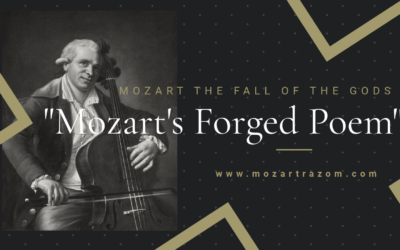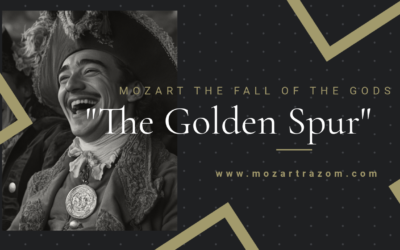Leopold Mozart
The Myth of Mozart: A Closer Look at the Man Behind the Legend
A critical examination of Wolfgang Amadeus Mozart’s life reveals a man shaped more by his father’s ambitions than by innate genius. Stripped of the myths, Mozart’s early years reflect a childhood dominated by relentless touring, inconsistent education, and a legacy built on exaggerated achievements. Discover the real story behind the legend.
“It wasn’t like that, because Leopold chose to rush his children’s development, making them perform immediately as circus attractions, dragged from place to place, even at the risk of their lives, just to astonish an audience that was generally incompetent and merely seeking entertainment”
Mozart in Italy
Wolfgang Amadeus Mozart is often celebrated as a musical prodigy and a genius whose talents were unparalleled. However, the reality of his life, as revealed through a more critical examination, suggests a different story. Born into a family where his father, Leopold, had grand ambitions, Mozart’s early years were shaped more by his father’s aspirations than by his own natural genius.
From the moment Wolfgang was born, Leopold saw in him an opportunity to fulfil his own dreams of fame and recognition. Leopold’s goal was not just to nurture his son’s musical talents but to create a spectacle that could be paraded across Europe, showcasing Wolfgang and his sister Nannerl as prodigies. The family’s relentless touring and performances were not so much about artistic growth as they were about satisfying Leopold’s desires for status and success.
Contrary to popular belief, Wolfgang’s early musical education was far from comprehensive. While he was encouraged to improvise and perform, his formal training was inconsistent, and much of what is attributed to his early compositions may have been heavily influenced or even entirely crafted by his father. The legendary “compositional notebooks” purportedly filled with young Wolfgang’s works were, in fact, mostly exercises and simple pieces, many of which were written or arranged by Leopold himself.
Leopold’s ambition extended to the fabrication of documents and stories that exaggerated Wolfgang’s early achievements. The so-called “composition book” gifted to Wolfgang for his seventh name day was later revealed to be a fraud, created long after the fact to embellish the narrative of Mozart’s childhood brilliance. These myths were further propagated by early biographers who relied heavily on Leopold’s embellished accounts, rather than on verifiable facts.
The truth is that Wolfgang was a talented child, but he was also a product of his father’s relentless ambition. Instead of allowing him to develop naturally, Leopold thrust Wolfgang into the limelight, often at the expense of his education and well-being. This aggressive pursuit of fame created a legend, but it also obscured the reality of who Mozart truly was.
You May Also Like
#3 Leopold Mozart’s Literary Theft
Hidden within the Mozarteum’s archives lies a poem that has long been hailed as a tribute to the young Mozart children. But behind this innocent façade is a story of deception, literary theft, and one father’s ambition to rewrite history.
#4 The Golden Spur
While often portrayed as a prestigious award, the Golden Spur (Speron d’Oro) granted to Mozart in 1770 was far from a reflection of his musical genius. In this article, we delve into the true story behind this now-forgotten honour, its loss of value, and the role of Leopold Mozart’s ambitions in securing it.
Mozart Unmasked: The Untold Story of His Italian Years
Explore the lesser-known side of Wolfgang Amadé Mozart’s early years in Italy. ‘Mozart in Italy’ unveils the complexities, controversies, and hidden truths behind his formative experiences, guided by meticulous research and rare historical documents. Delve into a story that challenges the traditional narrative and offers a fresh perspective on one of history’s most enigmatic composers.
Another Example of Borrowed Genius
The myth of Mozart’s genius continues to collapse under the weight of his reliance on others’ ideas, with Leopold orchestrating his son’s supposed early brilliance.
A Genius or a Patchwork?
The genius of Mozart had yet to bloom, despite the anecdotes passed down to us. These concertos were not the work of a prodigy, but a collaborative effort between father and son, built on the music of others.
Myth, Reality, and the Hand of Martini
Mozart handed over Martini’s Antiphon, not his own, avoiding what could have been an embarrassing failure. The young prodigy had a lot to learn, and much of what followed was myth-making at its finest.







